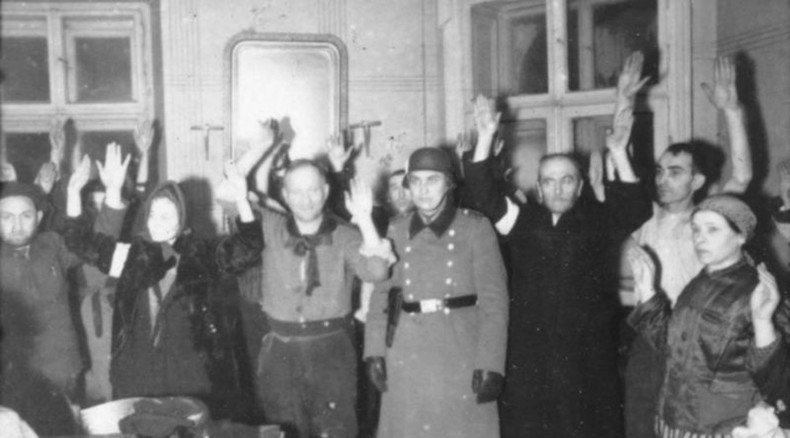Quarter of Romanians want a Jew-free country – poll

In Romania, once host to one of Europe's largest Jewish populations before participating in the Holocaust, nearly a quarter of people told pollsters that the country should have no Jewish residents.
Of the 1,000 Romanian adults polled by the Center for Opinion and Market Studies in June, 11 percent said Jews were “a problem for Romania” while 22 percent said they would only like them as tourists, not neighbors. Romanian military dictator, Ion Antonescu, who was executed for war crimes in 1946, is seen as a patriot by over a half of Romanians, the poll showed.
So much for my Wet Hot Romanian Summer plans.
"Eleven percent described Jews as 'a problem for Romania'and 22... http://t.co/PRnGBvHmf1
— Mikhael Smits (@mikhaelsmits) August 5, 2015Before World War II Romania had over 750,000 Jewish residents. The Antonescu government was an ally of Nazi Germany and shared its anti-Semitic policies. About half of the Jewish population was murdered by the regime, which was also responsible for massacring some 120,000 Jews during the invasion of Soviet Ukraine.
READ MORE: Anti-Semitic incidents surge after terror attacks, says Jewish charity
In the aftermath of the war, communist Romania hushed up its collaboration with the Nazis. In 2003, after top governmental figures sparked international outrage by denying that Jews and other minorities had been persecuted under Antonescu, an investigative commission was set up to tackle the issue. A year later it released a scalding report that came as shock to many Romanians.
In #Romania, 11% see Jews as "a problem" and 22% want them "only as tourists". Horrific stuff. http://t.co/i5XlmIXUih
— Andrew MacDowall (@andrewmacdowall) August 3, 2015More than a decade after the Wiesel Commission report, Romania still appears to be struggling with the darker pages of its past. The poll, commissioned by the Wiesel National Institute for Holocaust Studies and founded on the commission's recommendation, showed that while 73 percent of Romanians are aware of the Holocaust, only 34 percent admitted that it had happened in their country.
On the evening of June 28, view the roundup of Jews during a pogrom in Iasi, Romania http://t.co/dleabhf3Kzpic.twitter.com/tAwXCIkpMk
— Yad Vashem (@yadvashem) June 28, 2015Sixty-nine percent blamed Nazi Germany for murdering minorities in Romania, while just 19 percent said the Antonescu government bore the main responsibility. The dictator himself is seen as a patriot and a strategist by 54 percent of the respondents. He is also considered responsible for crimes against the Roma minority and the Jews by 46 and 30 percent of Romanians respectively.
The Roma people are Romania's most-rejected and unwanted ethnic minitory, followed by the Hungarians, Wiesel Institute Director Alexandru Florian told a press conference.
A similar poll was taken in 2007, and over the years some progress in recognizing Romania's historic crimes has been made by the population. The number of those aware of the Holocaust in the country has grown by six percent since the 2007 poll, while the number or those holding the Antonescu government responsible has grown by eight percent.
#Antisemitism Romania outlaws Holocaust denial: “We congratulate President Iohannis for his stro... http://t.co/HvtnIsHDno#Jews#Israel
— #JadeHelm15 INTERN (@AnimalRightsJen) July 24, 2015Romania's painful reconciliation with the past was marked in July by the passing of legislation that made denial of the Holocaust a crime punishable by up to three years in prison. It also outlawed promotion of the Iron Guard, or the Legionnaire Movement, a paramilitary right-wing organization that propped up Antonescu, but fell from grace after revolting against him in 1941.
The new law updates a 2002 government order, which criminalized the denial of the Holocaust, but was criticized for vague wording that made its enforcement difficult.












